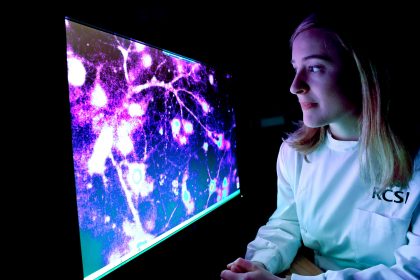- Home
- Editorial
- News
- Practice Guidelines
- Anesthesiology Guidelines
- Cancer Guidelines
- Cardiac Sciences Guidelines
- Critical Care Guidelines
- Dentistry Guidelines
- Dermatology Guidelines
- Diabetes and Endo Guidelines
- Diagnostics Guidelines
- ENT Guidelines
- Featured Practice Guidelines
- Gastroenterology Guidelines
- Geriatrics Guidelines
- Medicine Guidelines
- Nephrology Guidelines
- Neurosciences Guidelines
- Obs and Gynae Guidelines
- Ophthalmology Guidelines
- Orthopaedics Guidelines
- Paediatrics Guidelines
- Psychiatry Guidelines
- Pulmonology Guidelines
- Radiology Guidelines
- Surgery Guidelines
- Urology Guidelines
A blood test may predict onset of epileptic seizures, finds new study

A blood test may predict the onset of epileptic seizures in future. There are certain molecules in the blood which rise before the onset of a seizure. Therefore a pattern of molecules in the blood may assist doctors to predict the arrival of a seizure, according to a fresh study published in the Journal of Clinical Investigation (JCI).
These molecules appear in the blood before a seizure happens. The research team feels that this discovery may lead to the development of an early warning system, which would enable people with epilepsy to know when they are at risk of having a seizure. The study was led by Researchers at FutureNeuro, the SFI Research Centre for Chronic and Rare Neurological Diseases, hosted at RCSI (Royal College of Surgeons in Ireland).
FutureNeuro and RCSI researchers have discovered molecules in the blood that are higher in people with epilepsy before a seizure happens. These molecules are fragments of transfer RNAs (tRNAs), a chemical closely related to DNA that performs an important role in building proteins within the cell. When cells are stressed, tRNAs are cut into fragments. Higher levels of the fragments in the blood could reflect that brain cells are under stress in the build-up to a seizure event.
 Pictured is Dr Marion Hogg, Honorary Lecturer at RCSI and FutureNeuro investigator, who is the lead author of the study that found a pattern of molecules that appear in the blood before a seizure happens, which may lead to the development of an early warning system for those with epilepsy. Photograph: Maxwell Photography
Pictured is Dr Marion Hogg, Honorary Lecturer at RCSI and FutureNeuro investigator, who is the lead author of the study that found a pattern of molecules that appear in the blood before a seizure happens, which may lead to the development of an early warning system for those with epilepsy. Photograph: Maxwell PhotographyUsing blood samples from people with epilepsy at the Epilepsy Monitoring Unit in Beaumont Hospital, Dublin and in a similar specialist centre in Marburg, Germany, the group found that fragment levels of three tRNAs "spike" in the blood many hours before a seizure.
“People with epilepsy often report that one of the most difficult aspects of living with the disease is never knowing when a seizure will occur,” said Dr Marion Hogg, FutureNeuro investigator, Honorary Lecturer at RCSI, and the study’s lead author.
“The results of this study are very promising. We hope that our tRNA research will be a key first step toward developing an early warning system.”
Approximately 40,000 people in Ireland have epilepsy and one-third of those do not respond to current treatments, meaning they continue to experience seizures. The World Health Organisation estimates that more than 50 million people worldwide have epilepsy.
“New technologies to remove the unpredictability of uncontrolled seizures for people with epilepsy are a very real possibility,” said Professor David Henshall, Director of FutureNeuro and Professor of Molecular Physiology and Neuroscience at RCSI who was a co-author on the paper.
“Building on this research we in FutureNeuro hope to develop a test prototype, similar to a blood sugar monitor that can potentially predict when a seizure might occur.”

Disclaimer: This site is primarily intended for healthcare professionals. Any content/information on this website does not replace the advice of medical and/or health professionals and should not be construed as medical/diagnostic advice/endorsement or prescription. Use of this site is subject to our terms of use, privacy policy, advertisement policy. © 2020 Minerva Medical Treatment Pvt Ltd